March 7 stands as one of history’s most eventful days, witnessing the rise and fall of empires, groundbreaking discoveries, and moments that shaped our modern world across centuries of human achievement.

Politics and Government Events on March 7
1965 – Bloody Sunday: Civil Rights Marchers Brutally Attacked in Selma

A group of 600 civil rights marchers faced brutal assault from state and local police in Selma, Alabama. The peaceful protesters sought voting rights equality but encountered violent resistance on Edmund Pettus Bridge.
Television coverage of the savage beatings shocked the nation and galvanized public opinion. This pivotal moment accelerated passage of the Voting Rights Act of 1965.
1951 – Iranian Prime Minister Ali Razmara Assassinated

Khalil Tahmasebi, a member of the Islamic fundamentalist Fada’iyan-e Islam, murdered Iranian Prime Minister Ali Razmara outside a Tehran mosque. The assassination marked a turning point in Iran’s political landscape during the oil nationalization crisis.
Razmara’s death removed a key moderate voice from Iranian politics. His killing paved the way for Mohammad Mosaddegh’s rise to power and the eventual oil industry nationalization.
1989 – Iran and United Kingdom Break Diplomatic Relations
Iran and the United Kingdom severed diplomatic ties following the controversy over Salman Rushdie’s novel “The Satanic Verses.” The dispute centered on Iran’s fatwa against the British author and his controversial work.
The diplomatic rupture highlighted tensions between Islamic fundamentalism and Western literary freedom. This breach lasted for nearly a decade, affecting trade and political cooperation between the nations.
2024 – Sweden Officially Joins NATO
Sweden completed its historic accession to NATO, becoming the alliance’s 32nd member. This decision reversed decades of Swedish neutrality and marked a significant shift in Nordic security policy.
The membership followed extensive negotiations and represented a direct response to Russian aggression in Ukraine. Sweden’s inclusion strengthened NATO’s presence in the Baltic Sea region.
2007 – British House of Commons Votes for Elected House of Lords
The British House of Commons voted to make the House of Lords completely elected rather than appointed. This historic decision represented the most significant constitutional reform proposal in generations.
The vote challenged centuries of aristocratic privilege in British governance. However, the reform faced subsequent obstacles and was never fully implemented.
1931 – Parliament House of Finland Officially Inaugurated

Finland officially opened its new Parliament House in Helsinki, symbolizing the young nation’s democratic aspirations. The building represented Finnish independence and commitment to parliamentary democracy.
The inauguration occurred during a period of European political turmoil. Finland’s democratic institutions would soon face severe tests during World War II.
Military and Naval History on March 7
1941 – German U-boat U-47 Disappears Without Trace

Günther Prien and his crew aboard the legendary German submarine U-47 vanished mysteriously during World War II. U-47 had gained fame for penetrating the British naval base at Scapa Flow early in the war.
The submarine’s disappearance marked the end of one of Nazi Germany’s most successful U-boat careers. Prien had become a national hero, and his loss dealt a significant blow to German naval morale.
1902 – Boers Defeat British at Battle of Tweebosch
Boer forces led by Koos de la Rey achieved a decisive victory over British troops at the Battle of Tweebosch. This engagement occurred during the final phase of the Second Boer War when guerrilla tactics proved highly effective.
The battle demonstrated continued Boer resistance despite British numerical superiority. De la Rey’s tactical brilliance helped prolong the conflict and increase British casualties significantly.
1951 – Operation Ripper Begins in Korean War
United Nations troops under General Matthew Ridgway launched Operation Ripper against Chinese forces in Korea. This major offensive aimed to push communist forces back across the 38th parallel.
The operation marked a turning point in the Korean War’s momentum. Ridgway’s tactical approach restored UN confidence after earlier Chinese victories.
2009 – Massereene Barracks Shooting Ends Northern Ireland Peace
The Real Irish Republican Army killed two British soldiers at Massereene Barracks, ending years of peace in Northern Ireland. The attack injured two additional soldiers and two civilians, shattering the post-Troubles calm.
These murders represented the first British military deaths in Northern Ireland since the Good Friday Agreement. The incident raised fears about renewed sectarian violence in the region.
Science and Discovery Milestones on March 7
1986 – Challenger Crew Cabin Located on Ocean Floor

Divers from the USS Preserver discovered the crew cabin of the space shuttle Challenger on the ocean floor. The tragic explosion had occurred weeks earlier, devastating NASA and the American space program.
The recovery operation provided crucial evidence about the disaster’s cause. This discovery helped investigators understand the sequence of events that led to the shuttle’s destruction.
1954 – Nobel Prize Winner Otto Diels Dies

German chemist Otto Diels, recipient of the Nobel Prize in Chemistry, passed away on this date. His groundbreaking work on the Diels-Alder reaction revolutionized organic chemistry and synthetic methods.
Diels’ contributions enabled countless pharmaceutical and industrial applications. His research established fundamental principles still used in modern chemical synthesis.
1997 – Physicist Edward Mills Purcell Dies

Edward Mills Purcell, American physicist and Nobel Prize laureate, died after a distinguished career in nuclear magnetic resonance. His work laid the foundation for modern MRI technology and medical imaging.
Purcell’s discoveries transformed both physics and medicine. His research enabled non-invasive medical diagnostics that save countless lives today.
Cultural and Arts Events on March 7
1988 – Drag Queen Divine Dies

Divine, the legendary drag queen and film actor, passed away at the height of fame. Divine had achieved international recognition through collaborations with filmmaker John Waters in cult classics.
The performer’s death shocked the entertainment world and LGBTQ+ community. Divine’s influence on drag culture and independent cinema continues to inspire new generations of artists.
1999 – Director Stanley Kubrick Dies

Stanley Kubrick, the visionary American filmmaker, died just days after completing his final film “Eyes Wide Shut.” His perfectionist approach and innovative techniques had revolutionized cinema over decades.
Kubrick’s death marked the end of an era in filmmaking. His influence on visual storytelling and cinematic technique continues to inspire directors worldwide.
2024 – Hannah Gutierrez-Reed Found Guilty in Rust Shooting
Hannah Gutierrez-Reed was convicted of involuntary manslaughter in the death of cinematographer Halyna Hutchins on the “Rust” movie set. This verdict represented the first conviction for causing a death during film production.
The case highlighted safety concerns in Hollywood productions. Industry-wide reforms followed to prevent similar tragic accidents on movie sets.
1931 – Finnish Artist Akseli Gallen-Kallela Dies
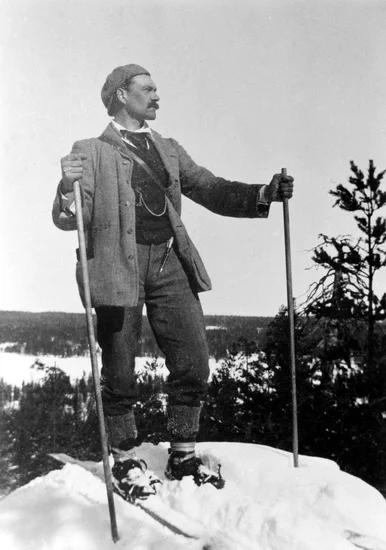
Akseli Gallen-Kallela, Finland’s most celebrated artist, died after creating iconic works depicting Finnish mythology and culture. His paintings helped establish a distinct Finnish artistic identity during the nation’s independence movement.
Gallen-Kallela’s art captured the essence of Finnish folklore and landscape. His work remains central to Finnish cultural identity and national pride.
Religious and Social Events on March 7
1932 – French Statesman Aristide Briand Dies
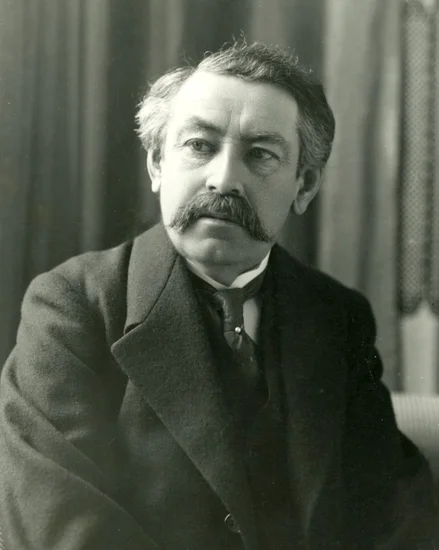
Aristide Briand, French journalist, politician, and Nobel Peace Prize laureate, passed away after a distinguished career promoting international cooperation. He served as Prime Minister of France multiple times and championed European unity.
Briand’s vision of European integration preceded the modern European Union by decades. His diplomatic efforts helped stabilize Europe during the turbulent interwar period.
1975 – Philosopher Mikhail Bakhtin Dies
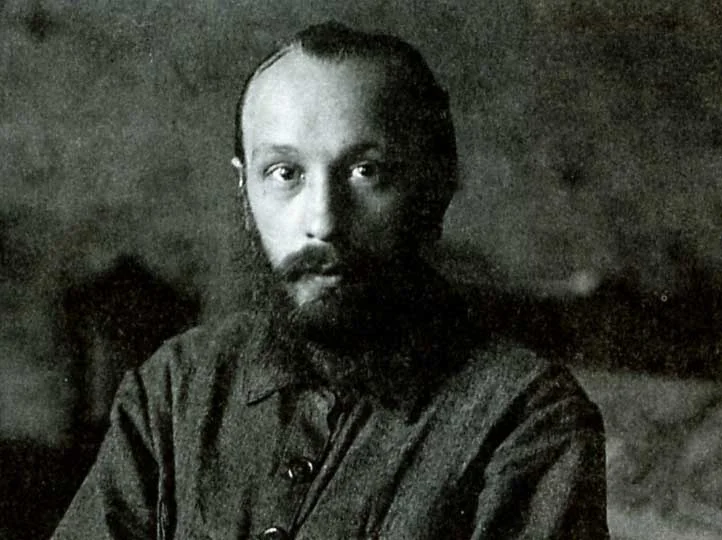
Russian philosopher and literary critic Mikhail Bakhtin died, leaving behind revolutionary theories about language, literature, and culture. His concepts of dialogism and carnival profoundly influenced literary criticism and cultural studies.
Bakhtin’s work gained international recognition only after his death. His theories continue to shape understanding of communication, culture, and human interaction.
1971 – Mathematician Richard Montague Dies

Richard Montague, American mathematician and philosopher, died after making groundbreaking contributions to formal logic and linguistic theory. His work bridged mathematics and philosophy in unprecedented ways.
Montague’s theories revolutionized formal semantics and computational linguistics. His mathematical approach to language analysis influences artificial intelligence research today.
Business and Economic Events on March 7
1921 – Socialist Labin Republic Proclaimed
The short-lived socialist Labin Republic was proclaimed in what is now Croatia. This brief experiment in workers’ control emerged from post-World War I economic and social upheaval.
The republic lasted only a few weeks before being suppressed by authorities. Despite its brevity, it demonstrated growing socialist sentiment in southeastern Europe.
2006 – Terrorist Bombings Strike Varanasi
The terrorist organization Lashkar-e-Taiba coordinated devastating bomb attacks in Varanasi, India. The explosions targeted the holy city’s religious sites and commercial areas, killing innocent civilians.
The attacks disrupted India’s tourism industry and religious pilgrimage trade. Security measures at religious sites nationwide were significantly enhanced following these incidents.
2021 – Massive Explosions Rock Bata, Equatorial Guinea
At least 108 people died and 615 were injured in devastating explosions at a military base in Bata, Equatorial Guinea. The blasts destroyed surrounding neighborhoods and displaced thousands of residents.
The disaster severely impacted the small nation’s economy and infrastructure. International aid efforts mobilized to assist with recovery and humanitarian needs.
Transportation and Infrastructure on March 7
1951 – Northwest Orient Airlines Flight 307 Crashes

Northwest Orient Airlines Flight 307 crashed in Lynnhurst, Minneapolis, killing all 15 people aboard. The tragedy highlighted ongoing safety concerns in commercial aviation during the industry’s rapid expansion.
The crash prompted investigations into aircraft maintenance and pilot training procedures. Safety improvements implemented afterward helped reduce future aviation accidents.
2007 – Garuda Indonesia Flight 200 Crashes

Garuda Indonesia Flight 200 crashed at Adisutjipto International Airport in Yogyakarta, Indonesia, resulting in 21 fatalities. The accident occurred during landing approach in challenging weather conditions.
The crash led to enhanced safety protocols at Indonesian airports. Improved pilot training and aircraft maintenance standards followed the investigation.
1965 – Aeroflot Flight 542 Crashes

Aeroflot Flight 542 crashed in the Yermakovsky District, killing all 31 passengers and crew members. The Soviet airline disaster highlighted safety deficiencies in Eastern Bloc aviation systems.
The crash prompted internal reviews of Soviet aviation safety procedures. However, details remained classified for decades due to Cold War secrecy.
Sports and Recreation on March 7
1991 – Baseball Legend Cool Papa Bell Dies

Cool Papa Bell, one of baseball’s fastest players and Negro League legend, passed away after a remarkable career. His incredible speed on the basepaths became the stuff of legend among teammates and opponents.
Bell’s career spanned the era when baseball was segregated. His achievements helped pave the way for integration and recognition of Negro League excellence.
1993 – South African Cricketer Tony Harris Dies
Tony Harris, South African cricketer, died after representing his country during apartheid-era international cricket. His career coincided with South Africa’s isolation from international sport due to racial policies.
Harris played during one of cricket’s most politically charged periods. His generation of South African players missed opportunities for broader international recognition.
1988 – Estonian Sculptor Ülo Õun Dies
Ülo Õun, Estonian sculptor, passed away after creating significant works that celebrated Estonian cultural identity. His sculptures adorned public spaces throughout Estonia during the Soviet period.
Õun’s art subtly preserved Estonian national identity during foreign occupation. His works became symbols of cultural resistance and national pride.
Notable Births on March 7
1917 – Betty Holberton, Computer Programming Pioneer

Betty Holberton entered the world in Philadelphia, destined to become one of computing’s earliest pioneers. Her childhood fascination with mathematics and problem-solving shaped her future career path.
Holberton would later help program ENIAC, one of the first electronic computers. Her innovations in programming languages and software development established foundations for modern computing.
1956 – Bryan Cranston, Acclaimed Actor

Bryan Cranston was born in Hollywood, California, beginning a journey toward television and film stardom. His early exposure to the entertainment industry influenced his artistic development.
Cranston would achieve worldwide recognition for his portrayal of Walter White in “Breaking Bad.” His versatile performances earned critical acclaim and numerous awards.
1971 – Rachel Weisz, Academy Award Winner

Rachel Weisz was born in London, England, to parents who encouraged her artistic pursuits. Her multicultural background and education shaped her sophisticated approach to acting.
Weisz would win an Academy Award for Best Supporting Actress for “The Constant Gardener.” Her performances consistently demonstrate intelligence and emotional depth.
1904 – Reinhard Heydrich, Nazi SS Officer

Reinhard Heydrich was born in Halle an der Saale, Germany, into a musical family. His early life showed no indication of the dark path he would later follow.
Heydrich became one of the principal architects of the Holocaust. His assassination in 1942 triggered massive Nazi reprisals against Czech civilians.
1930 – Antony Armstrong-Jones, Royal Photographer

Antony Armstrong-Jones was born in London, showing early talent for photography and design. His artistic abilities would later bring him into royal circles.
Armstrong-Jones married Princess Margaret and became the 1st Earl of Snowdon. His photography career flourished alongside his aristocratic duties.
1944 – Townes Van Zandt, Influential Songwriter

Townes Van Zandt was born in Fort Worth, Texas, into a prominent family. His troubled childhood and struggles with mental health would profoundly influence his music.
Van Zandt became one of America’s most respected singer-songwriters. His songs have been covered by countless artists and remain influential in folk and country music.
1998 – Amanda Gorman, Youth Poet Laureate

Amanda Gorman was born in Los Angeles, California, displaying remarkable literary talent from an early age. Her passion for poetry and social justice emerged during her youth.
Gorman became the youngest inaugural poet in U.S. history when she performed at President Biden’s inauguration. Her powerful words captivated millions of viewers worldwide.
1938 – David Baltimore, Nobel Prize Winner

David Baltimore was born in New York City, showing early promise in scientific studies. His curiosity about biological processes drove his academic pursuits.
Baltimore would win the Nobel Prize in Physiology or Medicine for his work on tumor viruses. His research revolutionized understanding of cancer and viral infections.
1960 – Ivan Lendl, Tennis Champion

Ivan Lendl was born in Ostrava, Czechoslovakia, into a tennis-playing family. His parents’ athletic background provided early exposure to competitive sports.
Lendl dominated men’s tennis during the 1980s and early 1990s. His powerful baseline game and mental toughness earned him eight Grand Slam titles.
1964 – Wanda Sykes, Comedy Star

Wanda Sykes was born in Portsmouth, Virginia, developing her sharp wit and observational humor early. Her ability to find comedy in everyday situations became her trademark.
Sykes achieved success as a stand-up comedian, writer, and actress. Her comedy often addresses social issues with intelligence and humor.
Notable Deaths on March 7
1999 – Stanley Kubrick, Visionary Filmmaker

Stanley Kubrick died in Hertfordshire, England, just days after completing his final film “Eyes Wide Shut.” His perfectionist approach and innovative techniques had revolutionized cinema over four decades.
Kubrick’s death marked the end of an era in filmmaking. His influence on visual storytelling and cinematic technique continues to inspire directors worldwide.
1988 – Divine, Drag Queen Icon

Divine passed away in Los Angeles at the height of international fame. The legendary drag performer had achieved mainstream success through collaborations with filmmaker John Waters.
Divine’s death shocked the entertainment world and LGBTQ+ community. The performer’s influence on drag culture and independent cinema continues inspiring new generations.
1967 – Alice B. Toklas, Literary Figure

Alice B. Toklas died in Paris, France, ending a remarkable life intertwined with modernist literature. Her relationship with Gertrude Stein had made her a central figure in Parisian artistic circles.
Toklas preserved and promoted Stein’s literary legacy after her partner’s death. Her own memoir became a classic of 20th-century American literature.
1957 – Wyndham Lewis, Artist and Writer

Wyndham Lewis died in London after a career spanning painting, literature, and criticism. His involvement in the Vorticist movement had positioned him at the forefront of modernist art.
Lewis’s satirical novels and penetrating social criticism earned both praise and controversy. His artistic vision captured the turbulence of early 20th-century Europe.
1975 – Mikhail Bakhtin, Literary Theorist
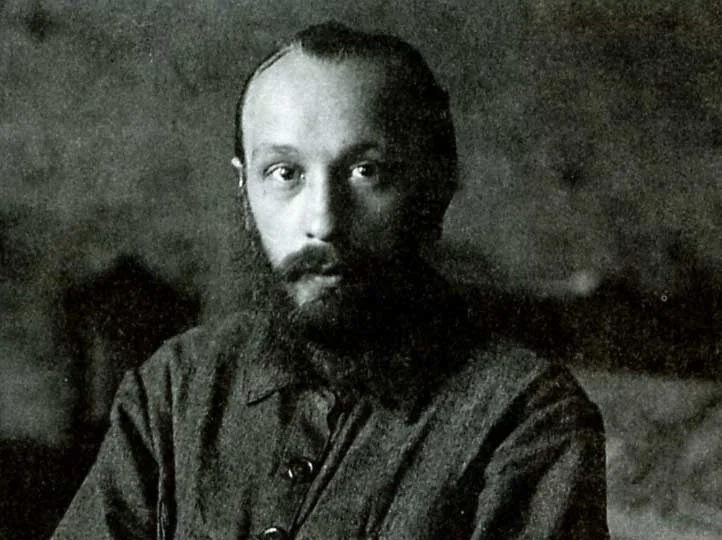
Mikhail Bakhtin died in Moscow, leaving behind revolutionary theories about language, literature, and culture. His concepts of dialogism and carnival profoundly influenced literary criticism.
Bakhtin’s work gained international recognition only after his death. His theories continue shaping understanding of communication, culture, and human interaction.
1976 – Wright Patman, American Politician
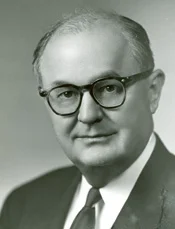
Wright Patman died after serving 47 years in the U.S. House of Representatives. His populist approach and advocacy for small farmers and consumers made him a powerful congressional voice.
Patman’s investigations into banking practices and corporate power influenced New Deal policies. His legacy includes significant consumer protection legislation.
1913 – Pauline Johnson, Canadian Poet
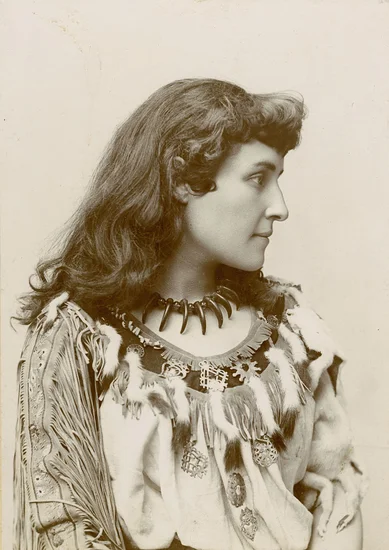
Pauline Johnson died in Vancouver, Canada, after achieving recognition as one of Canada’s first published Indigenous poets. Her mixed Mohawk and English heritage informed her unique literary voice.
Johnson’s poetry bridged Indigenous and European literary traditions. Her work helped establish a distinctly Canadian literary identity during the nation’s formative years.
Holidays and Observances on March 7
Christian Feast Day: Perpetua and Felicity

The Christian church commemorates Saints Perpetua and Felicity, two early Christian martyrs who died in Carthage around 203 AD. Their courage in facing persecution strengthened early Christian communities.
These saints represent the faith and determination of early Christian women. Their story continues to inspire believers facing religious persecution worldwide.
Maritime Day in Slovenia
Slovenia observes Maritime Day, celebrating the nation’s connection to the sea despite its small coastal area. The observance recognizes Slovenia’s maritime heritage and coastal communities.
The holiday highlights Slovenia’s naval history and marine environmental protection efforts. Coastal cities organize special events celebrating maritime culture and traditions.
Eastern Orthodox Liturgical Calendar
The Eastern Orthodox Church follows its traditional liturgical calendar on March 7. Various Orthodox communities worldwide observe specific saints and religious traditions on this date.
Orthodox Christians participate in special prayers and services according to their local traditions. The observances connect modern believers with centuries of Christian heritage.
